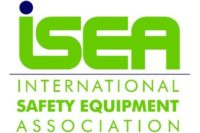The International Safety Equipment Association was in negotiations to take full control of the popular Qualified Safety Sales Professional course for a few months, with SEDA officially ceding its interest to ISEA in December. Distributor companies that were members of SEDA at the end retain the right to send employees to QSSP at the member rate for two more years.
Sign of the times
What caused the death of SEDA? Several factors: consolidation and the disappearance of local and regional safety specialists as founding families cashed out, the rise of the buying groups, inroads into the safety market by Grainger, Fastenal, Airgas, MSC, etc. In the end the few distributors who wanted to keep it going just couldn’t get enough support from the membership. Back in the 80s and 90s the SEDA summer meeting was the can’t-miss event in the industry. Even then, the group relied on a small, core of safety distributors to carry on association functions, and meetings attracted more safety products manufacturers than distributors.
By nature, small businesses such as many traditional family-run safety supply houses are independent, and difficult to corral into a consensus trade association. The small size of some of these distributors did not afford the budget for summer resort getaways, which were as much reunions of old friends and families as a business meeting. SEDA made numerous efforts to bulk up the conference side of its annual meeting, once having OSHA chief Joe Dear fly cross-country to Napa Valley to give a presentation.
And as golf and tennis meetings went out of favor with accountants, SEDA moved away from resort locales like Sun Valley and Hilton Head to Toronto and venues close to major cities such as Atlanta. Still, the groups had more members on its books than it could convince to come to meetings.
ISEA President Dan Shipp says his group will do some direct marketing to distributors, inviting them join ISEA if they want to be part of the industry association. At its meeting in November, 2011, ISEA’s Board approved a budget that includes a dues schedule for distributors that mirrors what distributors were paying for SEDA membership.
But Shipp adds: “ISEA is a different type of organization, based on products, technologies, standards and regulation more than selling. We don’t plan to change that direction, and will welcome distributors who are interested in what we have to offer.”








